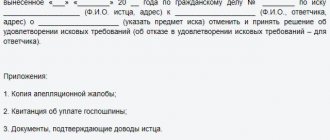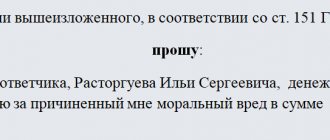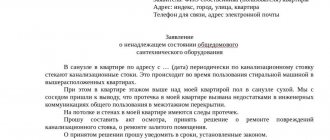Who is obliged to pay
The state fee when filing a claim is paid by the plaintiff. This is intended to ensure that claims are filed by a category of citizens who are confident in the seriousness of the defendant’s offense and in their own rightness.
This fact is economically justified and protects against the flow of unfounded complaints and lawsuits.
It is not always the plaintiff who bears the costs. After consideration of the case, if the court sides with the plaintiff, the defendant will reimburse him for legal expenses, including state fees.
What does the size depend on?
The state duty can be expressed in a fixed form, or it can be calculated as a percentage. The procedure for determining the fee depends on the type of claim. The document can be of a property nature, non-property, or sent for appeal. Calculation of the fee can be carried out only when all the characteristics of the claim and its price are determined. If a court order is issued, the fee is reduced by 50%.
Property nature of the claim
If the plaintiff’s claim is related to compensation for damage and the claim is addressed to a court of general jurisdiction, then the state duty is calculated as a percentage or a fixed amount as follows:
- if the plaintiff’s demands are no more than 20,000 rubles, the payment will be 4 percent of the price, but not less than 400 rubles;
- if the price is more than 20,000 rubles, but within 100,000 rubles, 800 rubles of duty and 3 percent of the amount over 20,000 rubles are subject to payment;
- if the plaintiff’s claims range from 100,000 to 200,000 rubles, you must pay 3,200 rubles and 2 percent of the amount over 100,000 rubles;
- if the claim is valued in the range from 200,000 to 1,000,000 rubles, then the plaintiff, in addition to the fixed amount of 5,200 rubles, will also pay in addition 1 percent of the amount over 200,000 rubles;
- if the plaintiff’s claims amount to more than 1,000,000 rubles, the state duty will be 13,200 rubles and 0.5 percent of the amount, more than 1,000,000 rubles, but in the end cannot exceed 60,000 rubles.
Calculation of fees when applying to an arbitration court
How to calculate the state duty to the arbitration court is determined in Art. 333.21 Tax Code of the Russian Federation. Here, again, everything depends on the price of the claim, its subject matter and the status of the plaintiff.
For claims of a property nature and claims subject to assessment, the amount of the state duty is:
- 4% of the value of the claim, but not less than 2 thousand rubles - for claims in the amount of up to 100 thousand rubles;
- 4 thousand rubles + 3% of the amount over 100 thousand rubles – for claims in the amount of 100,001-200,000 rubles;
- 7 thousand rubles + 2% of the amount over 200 thousand rubles – for claims in the amount of 200,001-1,000,000 rubles;
- 23 thousand rubles + 1% of the amount over 1 million rubles – for claims in the amount of 1,000,001-2,000,000 rubles:
- 33 thousand rubles + 0.5% of the amount over 2 million rubles, but not more than 200 thousand rubles - for claims in the amount of more than 2 million rubles.
Fixed amounts are established for claims:
- on the invalidity of transactions, termination, amendment, conclusion of an agreement - 6,000 rubles;
- on challenging regulatory, including explanatory, acts of government authorities in the field of protection of intellectual property, patent rights and similar activities - 300 rubles (individuals) and 2000 (legal entities);
- on the invalidity of acts, on the illegality of decisions, actions, inactions of government bodies and officials - 300 rubles (individuals) and 3000 (legal entities);
- on the award of compensation for violation of the right to legal proceedings - 300 rubles (individuals) and 6,000 (legal entities);
- other non-property nature – 6,000 rubles.
Payment rules (Article 333.22 of the Tax Code of the Russian Federation):
- If the claim contains a claim of both a property and non-property nature, the state duty must be summed up: to the amount calculated for the claim of a property nature, the amount calculated for the claim of a non-property nature should be added.
- For claims of a property nature and claims subject to assessment, their price is determined as (depending on the subject of the claim):
- amount of money to be recovered;
- the disputed amount (for claims challenging the execution of a document on collection in an indisputable manner);
- the value of the claimed property or land.
- The amount of the claim must include accrued interest and penalties, and the calculation of the state duty is made after summing them up with the main claims.
- If an application to secure the claim is submitted simultaneously with the claim, an additional state fee is 3,000 rubles.
- The cost of the claim and the final amount of the state duty are determined by the plaintiff. However, if the court considers that the calculation was made incorrectly, it has the right to independently determine the price of the claim.
As in the case of courts of general jurisdiction, filing an application for a court order reduces the fee by half - it will be 50% of the amount that would be payable if a claim were filed.
Non-property nature of the claim
If the claim as a whole is not subject to assessment, contains non-property claims, or a supervisory complaint is filed, then citizens are required to pay 300 rubles, and organizations - 6,000 rubles.
When collecting alimony, you must pay 150 rubles. Moreover, if the court decides to collect alimony, the amount of the state duty will double.
In divorce cases, the fee will cost the plaintiff 600 rubles.
When applying for a court order, you will have to pay a fee in the amount of half the fee provided for filing the corresponding claim.
When appealing through cassation and appeal procedures, 150 rubles of the fee will be paid by the individual, 3,000 rubles by the organization.
Let's analyze claims in administrative proceedings:
- if it is necessary to challenge non-normative acts of higher authorities or regulatory legal acts of bodies, the citizen will pay 300 rubles. In this case, organizations will pay 4,500 rubles;
- if the issue arises of challenging the decisions of officials or recognizing non-normative legal acts of these persons and government agencies as illegal, the fee will be 300 rubles for individuals, legal entities will pay 2,000 rubles.
Legal norms
The state fee for a court of general jurisdiction, arbitration, the Supreme Court of the Russian Federation and other judicial bodies is established by specific regulatory legal acts (NLA), which are recognized as federal and cannot be canceled or amended by regional laws, regardless of the subject in which the appeal takes place.
The legal regulation of duty payment is carried out by the following legal acts:
- Tax Code of the Russian Federation (TC RF);
- Civil Procedure Code of the Russian Federation (Civil Procedure Code of the Russian Federation);
- Arbitration Procedural Code of the Russian Federation (APC RF).
The last two codes establish the obligation of citizens to pay a mandatory fee for the consideration of specific cases by courts. The Tax Code of the Russian Federation determines the amount and procedure for calculating the fee for all possible cases of going to court.

Payment Features
If you have to file a claim with a property and non-property claim, you will have to pay the state fee provided by law in both cases at the same time.
The state fee is not charged in cases related to labor relations, compensation for damage to health or damage caused by a crime, collection of alimony, protection of the interests of the disabled, copyright and related rights, adoption of a child, complaints against the actions of bailiffs and other private complaints against court decisions.
It should be noted that in the case of appeal and cassation appeals in divorce disputes, citizens are also exempt from the fee.
How to calculate the state fee in the magistrate's court
Calculation of the state duty to the magistrate’s court can also occur using the portal of the information space of magistrates’ judges or the magistrate’s court website.
The state fee for the Magistrates' Court will be determined after entering the following data:
- the name of the magistrate's court accepting the application;
- court district numbers;
- types of claim;
- plaintiff status.
The basis for calculating the amount of state duty is the price of the claim, determined according to the rules established by procedural legislation. For example, in claims for ownership of real estate owned by a citizen, the value of the object, and therefore the price of the claim, can be determined according to market valuation data or technical inventory authorities (no less than the inventory valuation according to the technical passport). In claims for alimony, the cost of the claim is considered to be the amount of alimony payments for the year. For debt collection claims, the value of the claim is considered to be a maximum of 3 years of debt.
How and where to pay
Remember that if you go to court without paying the state fee, you will receive a refusal. In addition to paying the fee itself, it is important to provide a receipt of payment along with the original to the court clerk as confirmation.
The receipt should be filled out carefully, correctly indicating the details of the current account and the payer’s information, so that in the future you do not encounter the fact that the funds did not reach the addressee. Errors will serve as grounds for refusal to accept the claim. In addition, you can find samples of completed receipts on the Internet.
Please note: it is important not to make a mistake in the receipt details. Depending on which court the claim will be addressed to, for example the Moscow district court or the city court, it is worth finding out in advance all the required information at the court site or on official websites on the Internet.
Now it is possible to accurately calculate the state duty online using sites that offer the services of a state duty calculator. Having determined the amount, you can make the payment at Sberbank branches, terminals and ATMs, through post offices or on specialized web resources.
When the fee is paid, be sure to take all documents confirming the fact of payment. How to quickly calculate the amount of state duty in court, see the explanation in the following video:
Methods for calculating state duty
There are three main options for independently calculating the state duty when filing a claim:
- Online calculators on court websites and portals. For example, when applying to the city or district courts of Moscow, it is proposed to use the calculator located on the official portal “Courts of General Jurisdiction of the City of Moscow”. Similar services are available on the websites of all arbitration courts of the constituent entities of the federation (for example, a calculator on the website of the Arbitration Court of the Pskov Region), as well as on regional/city portals of magistrates (for example, a calculator on the portal “Magistrates of St. Petersburg” or a calculator on the portal “Unified information space of justices of the peace in Moscow). To find the court you are interested in, its contacts and website, you need to use the State Automated System “Justice”. The online calculator service, as a rule, is located either in the main menu block of the site on its main page, or in the “Services” section. It can also be found through a site search. To use the calculator, just follow the instructions step by step, which are given here on the page.
- Online calculators on legal websites or portals. They programmatically work on almost the same principle as calculators on websites and portals of the judicial system. But when using such services, there is a risk that the information contained in them will be out of date, whereas on judicial websites of any kind the information is of an official nature.
- Manual calculations based on the norms of the Tax Code are the most difficult and long way. It is recommended to use it only if it is not possible to use an online calculator or for some reason you think the service is not working correctly.
State duty calculator
We invite you to use our court fee calculator, which is constantly kept up to date by practicing lawyers and our technical specialists.
Important nuances of calculating and paying state fees
There are some general important points to consider when calculating your government fee. It must be borne in mind that the duty, along with moral damages, is not included in the claim price. It is included in the item of legal expenses and is considered separately. Also, the cost of the claim must be considered as a primary value relative to the duty. This means that it is not the state duty that affects the price of the claim, but, on the contrary, the size of the first depends on the second.
A number of nuances that are included in the legislation significantly affect the amount of state duty. One of them is that the applicant calculates the amount of payment independently, but if the plaintiff made a mistake in the calculations, the judge will assign the missing part of the fee to be paid. Also, the plaintiff will have to re-do the calculations and pay the difference if the cost of the claim has been increased.
If the case is successfully completed, the law obliges the plaintiff to reimburse the paid fee. Then the fee is assigned to the defendant, but only if he does not have special benefits that allow him to refuse payment.
When several citizens submit a collective application, the duty payment is distributed evenly among everyone. When the group of applicants includes a beneficiary exempt from paying the fee, the amount of state duty is reduced by an amount equal to his share. If several applications are submitted with different subjects of dispute, then the applicant must calculate the amount of the fee individually for each application.
Read also: What types of claims are there and their specifics in civil proceedings
State duty benefits
When filing a lawsuit with a claim of up to a million rubles, the following groups of persons are entitled to benefits:
- public organizations of disabled people;
- pensioners when applying to the Pension Fund;
- veterans in cases of protection of rights;
- disabled people of the second and first groups.
If the claim exceeds one million rubles, such categories will pay the amount calculated in the general manner, minus 13,200 rubles.
They can be divided into two categories:
- Benefits when applying to courts of general jurisdiction and magistrates' courts.
- Benefits when appealing to the Supreme Court and arbitration courts.
When filing a claim in courts of general jurisdiction and magistrates' courts, plaintiffs who file claims are exempt from paying state fees:
- on the collection of wages and (or) other payments within the framework of labor relations;
- on the collection of benefits;
- on the collection of alimony or on the protection of the rights and interests of the child;
- for compensation for harm to health or as a result of the death of the breadwinner;
- on compensation for property (moral) damage as a result of a crime or criminal prosecution;
- administrative nature (administrative claims);
- on challenging the actions (inaction) of bailiffs;
- related to the protection of the rights and interests of people with disabilities, with the exception of property claims.
In addition, the following are exempt from paying state duty:
- disabled people of groups 1 and 2, as well as public organizations of disabled people;
- veterans of combat operations and military service (only in cases of protecting the rights of such categories of citizens);
- all plaintiffs in consumer rights claims;
- pensioners receiving a pension from the state and filing property claims of any plan or administrative property claims against the Pension Fund of Russia, Non-State Pension Funds and authorities involved in providing pensions for military personnel.
The listed categories of persons in the case of filing both property and non-property claims are exempt from the fee only on the condition that the value of the claim is no more than 1 million rubles. If the price of the claim is greater, then the duty is calculated first on a general basis (clause 1, clause 1 of Article 333.19 of the Tax Code of the Russian Federation, for claims over 1 million rubles), and then the amount calculated for the duty on claims with a price is subtracted from this amount received 1 million rubles. The total amount is the amount that will have to be paid.
When filing claims in arbitration courts, there are fewer benefits, which is due to the economic nature of the disputes and the fact that the plaintiffs, as a rule, are either organizations or entrepreneurs. Do not pay duty:
- prosecutor's office;
- municipal and government agencies;
- authors in claims for compulsory license;
- plaintiffs in claims related to the protection of the rights (interests) of the child.
Certain categories of persons who do not pay the fee include disabled people of groups 1 and 2 and public organizations of disabled people. However, in this situation the same rule applies as in the case of filing a claim of a property or non-property nature in the courts of general jurisdiction. True, in this case it also applies to purely property claims exceeding 1 million rubles. The duty is calculated according to paragraphs. 1 clause 1 art. 333.21 of the Tax Code of the Russian Federation minus the amount of duty calculated for a claim of 1 million rubles.
Exemption from duties by force of law is not the only benefit. Any plaintiffs who are experiencing financial difficulties can apply to the court for a deferment or installment payment of the state duty. You can also submit an application to the court for exemption from payment, however, this is an exceptional measure, and it will be necessary to prove for what reasons the plaintiff cannot pay the state duty at all, even if a deferment or installment plan is granted.
How to pay the state fee to court
Payment of the state fee to the court must occur before the claim is filed. According to Art. 132 of the Code of Civil Procedure of the Russian Federation, the plaintiff must present a receipt for payment of the duty along with the statement of claim.
Failure to provide a document confirming payment of the fee is grounds for returning the statement of claim.
Methods of paying fees and confirming the fact of payment
Payment is made in cash or by bank transfer.
Depositing funds in non-cash form is confirmed by a payment order containing a note from the bank or territorial branch of the Federal Treasury about its execution.
When paying in cash, a citizen must have with him a receipt from the banking organization, official or cash desk of the authority where the payment was made.
In addition, the legislator allows confirmation of the fact of payment of the duty by using information from the State Information System on state and municipal payments.
Contents of the receipt for payment of state duty
A receipt for payment of the federal duty is the most common document confirming the fact of depositing funds.
Joint letter of the Ministry of Taxes of the Russian Federation No. FS-8-10/1199 and Sberbank of the Russian Federation No. 04-5198 dated September 10, 2001 in Appendix No. 1 contains a standard receipt form.
According to this regulatory act, the payment document includes the following information:
- document index;
- Full name, address and TIN number of the payer;
- payment amount;
- bank details of the payment recipient, including BIC, account number, BCC;
- TIN, checkpoint of the payee;
- OKTMO number according to the all-Russian classifier;
- date of payment.
The receipt received at the bank must be signed by an employee of the banking organization.
Deferment and installment payment
Russian legislation in Art. 90 of the Code of Civil Procedure of the Russian Federation provides for the possibility of deferment and installment payment of duties. Deferred payment involves postponing the deadline for a lump sum payment. Installment means that payment will be made in stages.
According to Part 1 of Art. 333.41 of the Tax Code of the Russian Federation, deferment and installment plans are provided for a period not exceeding 1 year. Interest on the amount of the duty in respect of which the court has granted the right to installment or deferred payment is not accrued.
Additional fee payment
Additional payment of duty, according to the norms of Part 2 of Art. 92 of the Code of Civil Procedure of the Russian Federation, is required when the size of claims increases.
The consideration of the case will continue after:
- provision by the plaintiff of evidence of payment of the fee;
- resolving the issue of deferment or installment plan;
- adoption by the judicial authorities of a decision to reduce the amount of the federal duty.
Refund
Refund of the amount paid towards the state duty is carried out if there are grounds listed in Art. 333.40 Tax Code of the Russian Federation.
Among the grounds for a full or partial refund of the paid federal duty, the following can be noted:
- Payment of excess amount.
- Return of the application.
- The court's refusal to accept the application.
- Leaving the application without consideration.
- Termination of legal proceedings.
Documents for refund
The fee is refunded based on an application from the citizen. Transfer of funds is made no later than 1 month from the date of receipt of the application.
In addition to the application, you will need to prepare payment documents confirming the fact of payment of the federal duty, in the original copy, if the duty must be returned in full. In cases where part of the fee is refundable, the applicant may submit copies of payment documents.
In addition to the receipt of payment of the fee, the applicant will need to submit:
- court decisions;
- judicial rulings;
- certificates from the courts about the circumstances of the refund of the duty.
State duty amount
The amount of duty in monetary terms will depend on the following factors:
- which court a person goes to with a statement of claim, an arbitration court, a magistrate’s court, or a court of general jurisdiction;
- what is the subject of the claim;
- what is the amount of the claim;
- whether the plaintiff has the right to benefits when paying the fee.
Almost all questions about the size, calculation of the state duty, benefits for its payment, and the payment procedure are described in the Tax Code of Russia, its second part; they are the regulatory and legal basis for further calculations.











